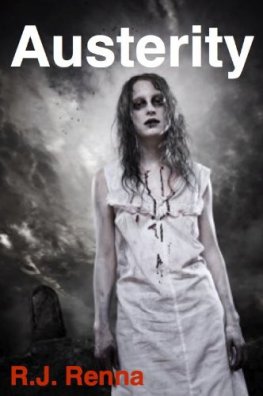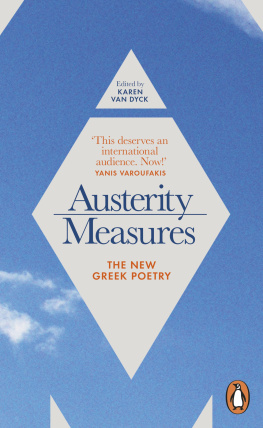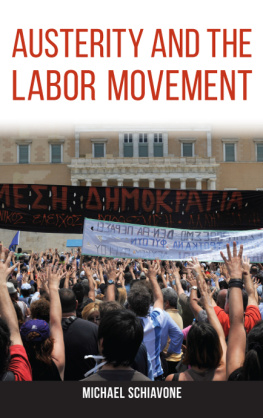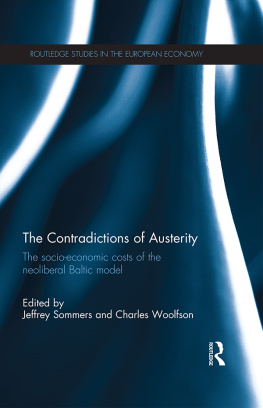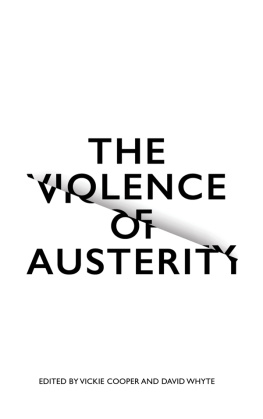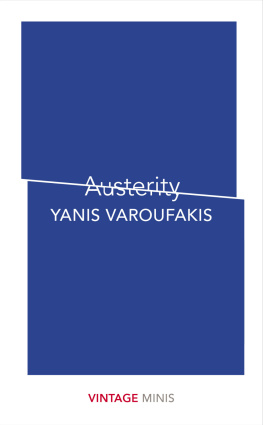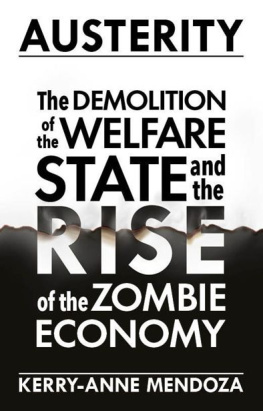First published in Great Britain in 2014 by
Policy Press University of Bristol 6th Floor Howard House Queens Avenue Clifton Bristol BS8 1SD UK Tel +44 (0)117 331 5020 Fax +44 (0)117 331 5367 e-mail
North American office: Policy Press c/o The University of Chicago Press 1427 East 60th Street Chicago, IL 60637, USA t: +1 773 702 7700 f: +1 773-702-9756 e:
Policy Press 2014
British Library Cataloguing in Publication Data
A catalogue record for this book is available from the British Library
Library of Congress Cataloging-in-Publication Data
A catalog record for this book has been requested
ISBN 978 1 44731 562 9 epub
ISBN 978 1 44731 563 6 Kindle
The right of Mary OHara to be identified as author of this work has been asserted by her in accordance with the 1988 Copyright, Designs and Patents Act.
All rights reserved: no part of this publication may be reproduced, stored in a retrieval system, or transmitted in any form or by any means, electronic, mechanical, photocopying, recording, or otherwise without the prior permission of Policy Press.
The statements and opinions contained within this publication are solely those of the author and not of the University of Bristol or Policy Press. The University of Bristol and Policy Press disclaim responsibility for any injury to persons or property resulting from any material published in this publication.
Policy Press works to counter discrimination on grounds of gender, race, disability, age and sexuality.
Cover design by Soapbox Design.
Readers Guide
This book has been optimised for PDA.
Tables may have been presented to accommodate this devices limitations.
Image presentation is limited by this devices limitations.
Austerity:
a definition
difficult economic conditions created by government measures to reduce a budget deficit, especially by reducing public expenditure: a period of austerity/[as modifier] austerity measures.
(Collins Dictionary)
* * * * *
No matter how often it repeats that its actions are fair, this government is making a political choice to attack the public sector and, by doing this now, damaging the whole of the economy long into the future. (Derek Simpson, Unite General Secretary, October 2010)
Austerity has failed. It has failed in the UK and it has failed in the Eurozone. Its failure was predictable and, by some at least, predicted. It turned a nascent recovery into stagnation. That imposes huge and unnecessary costs, not just in the short run, but in the long term as well: the costs of investments unmade, of businesses not started, of skills atrophied and of hopes destroyed. (Martin Wolf, columnist, Financial Times, May 2013)
Cutting the welfare state in the name of producing more growth and opportunity is an offensive canard. Austerity is not just the price of saving the banks. Its the price that banks want someone else to pay. (Mark Blyth, author of Austerity: The history of a dangerous idea, 2013)
Your societys broken, so who should we blame? Should we blame the rich, powerful people who caused it? No, lets blame the people with no power and no money and these immigrants who dont even have the vote yeah, it must be their fucking fault. (Iain Banks, author, spring 2013)
Austerity is not a medicine. Its a cancer; a cancer at the heart of society. (Jack Monroe, blogger, November 2013)
Austerity is not working. It isnt working anywhere its being used. I do not know why anybody with a so-called intelligent mind would attempt to bring austerity in when they can see it isnt working anywhere else. (Maria McGee, resident, Cookstown, Northern Ireland, January 2013)
We never imagined wed read about children, disabled and non-disabled being left without food. They say there is no money but if they stopped tax evasion and tax avoidance they wouldnt have to make the cuts. (Linda Burnip, Disabled People Against Cuts [DPAC], autumn 2013)
Ive got no TV. Ive got no fridge running, Im not using the heating at all yet. To me it just looks so gloomy. Ive done my best. Ive got two degrees. Im afraid to put the light on at night because of the cost of energy. It makes me very angry but theres not the support out there. Im just so stuck. (Lynne Middleward, South Tyneside)
I cant think straight when the government cuts certain things. I dont know how they come to these decisions. I dont think they live in the real world. Theyre cutting benefits people need to survive. (Annie, Birmingham)
Theres people that are suicidal. Theres people with mental health issues and if they didnt have mental issues before, they have them now because they are being so degraded. They are being so run down in life. Im not saying I want a life of luxury. I dont want a life of luxury. Do you know what I want? A life. (Dec, Luton)
I think the moral test of any government or of anyone with any humanity is ... do you look after the people who are sick, who are lonely and depressed? That aint happening. People are scared stiff. (Jackie Gallagher, Citizens Advice manager, Derry, Northern Ireland)
Work Capability assessor: Are you suicidal?
Benefits claimant: Yes
Assessor: Well then, why havent you achieved it?
For my husband, Colin and my sister Lisa who are always there for me
Acknowledgements
Authors always say this because it is a truism: a book is the product of the efforts and talents of many people. This book is no different. A lot of wonderful people showed incredible faith in me during the writing of this book, including a small army of friends and colleagues, and I owe them all deep thanks. First I want to thank the team at Policy Press. Alison Shaw believed in this project right from the start and was instrumental in not only making the book possible but in encouraging and supporting me to take it on despite extremely tight deadlines. To Jo Morton and the production team I owe a debt of gratitude for forensically picking up on errors, reshaping where necessary, and making suggestions that have made the book much better than it would otherwise have been.
I consider myself very lucky indeed that the people who read and critiqued my earliest drafts were not only generous with their time but also with their ideas, insights, and guidance. Thanks to Professor Danny Dorling who, as well as reading and critiquing, was always on hand as a friend with advice, and to Baroness Ruth Lister and Professor Simon Duffy for their candid and sage contributions. To Alison Benjamin, my long-time editor at The Guardian who also critiqued early drafts, I am inordinately grateful. Thanks too to Josie Long and Janine Gibson for their support for the book and to Mark Thomas for carving out time to write the foreword. Longstanding thanks to Alan Rusbridger who as editor of The Guardian put his faith in me many years ago, giving me my break in journalism.
To the Joseph Rowntree Foundation and the charity Locality whose dedication to promoting a wider understanding of poverty and of austerity provided the catalyst for the project from which this book was derived, there are many thanks due. Most of all I wish to thank the people I worked with directly from the start on the multi-media reports I compiled during 2012 and 2013 that would go on to form the bedrock of this book. Abigail Scott-Paul, Paul Brook, Emma Stone, Julia Unwin and the whole JRF team were a joy to work with. A group of more professional, warm and engaging people it would be hard to imagine. The same goes for Steve Clare, Steve Wyler and the team at Locality. To Steve Clare in particular a very big thanks is owed for helping with the complicated task of coordinating my travels and interviews around the country. Equally, my thanks to Quintin Oliver for his role in helping set up interviews across Northern Ireland. In addition, many thanks to Chris Kaboli who did such great work on the videos for the project.





